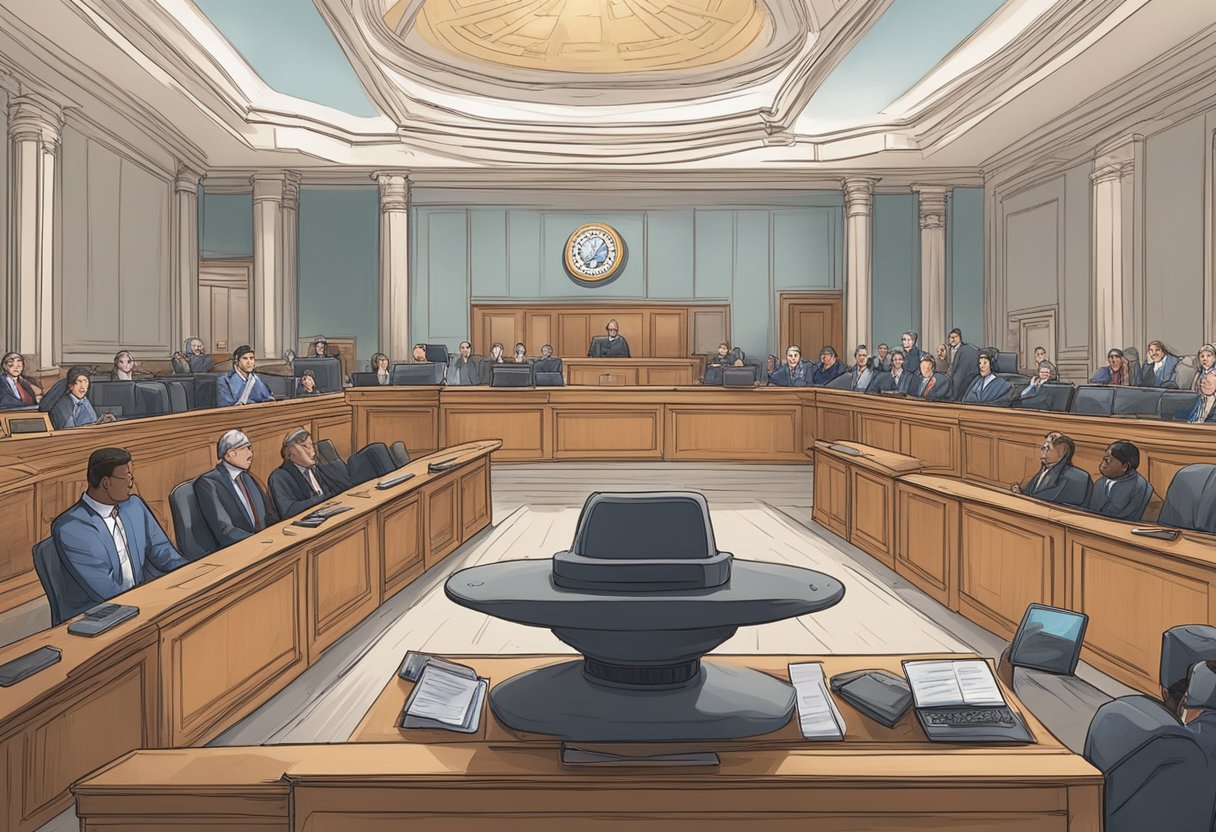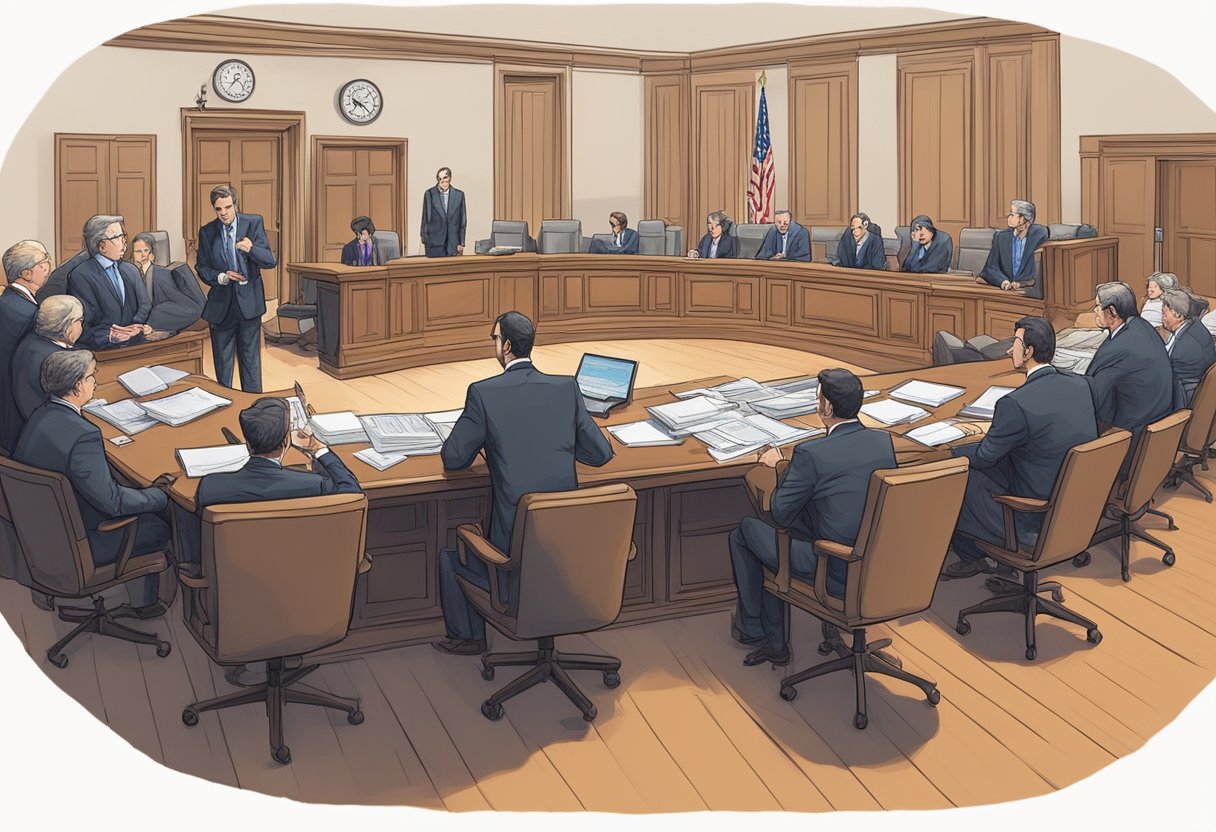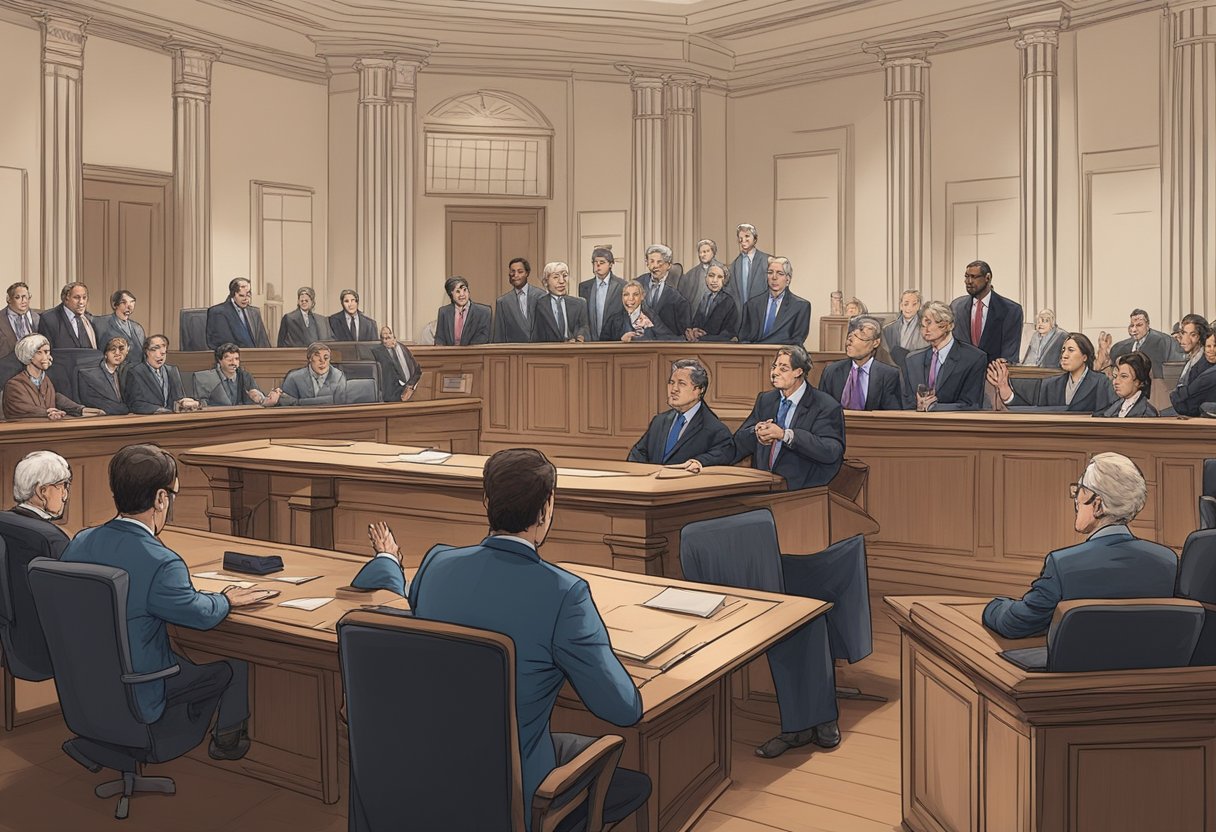The ongoing legal battle between Ripple Labs Inc. and the Securities and Exchange Commission (SEC) has captured the attention of the cryptocurrency community. The SEC alleges that Ripple engaged in the sale of XRP as unregistered securities, while Ripple maintains that XRP should not be classified as such. The outcome of this lawsuit could have profound implications for the cryptocurrency industry and the manner in which digital assets are regulated in the United States.

The case hinges on the application of US securities laws to the cryptocurrency space, a legal territory that until recently has seen little precedent. The SEC’s stance is that Ripple’s sale of XRP constitutes an ongoing security offering, yet Ripple contends that XRP is a cryptocurrency and should not be subject to the same regulatory constraints as traditional securities. This disagreement touches upon fundamental questions about the nature of cryptocurrencies and their potential classification within existing legal frameworks.
Speculation abounds as to whether a settlement might be reached between the two parties. A resolution could have ripple effects beyond just Ripple and XRP, setting a precedent for future SEC actions against other cryptocurrency entities. The industry watches closely, knowing that the results of this case may redefine the regulatory landscape for years to come.
Background and Legal Implications

The legal battle between Ripple Labs and the U.S. Securities and Exchange Commission (SEC) centers on whether Ripple’s sales of XRP tokens constitute unregistered securities transactions. This case holds significant implications for the cryptocurrency industry and securities law.
The Origin of SEC’s Charges Against Ripple Labs
The SEC filed a lawsuit against Ripple Labs, its CEO Brad Garlinghouse, and co-founder Chris Larsen in December 2020, alleging that they raised over $1.3 billion through an unregistered, ongoing digital asset securities offering. According to the SEC, the XRP token, a digital asset that Ripple was offering, should have been registered as a security because its sale satisfied the criteria of an investment contract under federal securities law. The case was brought before the Southern District of New York, igniting a complex legal debate.
Securities Law and The Howey Test
A cornerstone of the SEC’s argument hinges on the Howey Test, a Supreme Court case-derived standard determining what constitutes an investment contract. For an instrument to be considered a security, it must involve an investment of money in a common enterprise with profits to come primarily from the efforts of others. Despite Ripple’s assertion that XRP tokens are utilized for legitimate utility, the SEC argues that purchasers were expecting to profit from the efforts of Ripple Labs and its senior executives.
Ripple’s Defense and The Fair Notice Argument
Ripple counters that XRP is not a security but rather a tool for financial institutions, challenging the application of the Howey Test to this modern digital asset. They presented the fair notice defense, claiming they did not have reasonable warning from the SEC that XRP transactions violated securities laws. The absence of prior SEC actions against similar tokens is used by Ripple to bolster its case. Additionally, Ripple sought a summary judgment, a legal move aiming to resolve the case without a full trial, based on the argument that the SEC did not provide evidence that XRP sales were investment contracts.
Throughout the course of the lawsuit, both Ripple and the SEC have provided numerous arguments and counterarguments, making it a heavily watched legal showdown with potential ramifications for how digital assets are regulated in the United States.
Implications and Potential Outcomes

The ongoing Ripple vs. SEC lawsuit has reached a critical juncture where the possibility of settlement and its consequences are under intense scrutiny. This section will explore the potential scenarios of a settlement, the effects on XRP and the broader cryptocurrency market, as well as the larger implications for the crypto industry.
Possible Settlement Scenarios
A settlement between Ripple Labs and the SEC could manifest in several forms, each with distinct implications for Ripple and its digital asset, XRP. Ripple Labs may agree to pay a fine, with the possibility of part of the fine being allocated to reimbursing affected investors. Moreover, there could be stipulations that change how XRP is distributed or sold, potentially classifying it as a security which might necessitate registration under the Securities Act of 1933. This could influence how institutional investors engage with XRP. Ripple’s General Counsel Stuart Alderoty, and the SEC Chair Gary Gensler have pivotal roles in steering the direction of the negotiations.
Impact on XRP and The Cryptocurrency Market
Should a settlement be reached, the value of XRP is likely to experience immediate fluctuations based on market sentiment and the settlement details. As Ripple plays a significant role in the crypto exchange landscape with their blockchain infrastructure, the outcome could also sway other fintech and financial institutions considering blockchain technology adoption. If Ripple’s operational capabilities are affected, partner crypto companies may need to reassess their association and the paramountcy of XRP on their platforms.
Broader Consequences for The Crypto Industry
The lawsuit’s resolution is seen as a bellwether for how federal securities laws will be interpreted in relation to digital assets. A precedent will be set that could impact the entire industry, from crypto companies to the blockchain companies and investment contract assessments of digital assets. With numerous eyes on the case, including those of the Chamber of Digital Commerce and entities that have submitted amicus curiae briefs, the ramifications are expected to go beyond Ripple and could pave the way for regulation that affects all cryptocurrencies including players like Ethereum. A sense of stability and regulatory clarity could either empower or constrict the growth of blockchain-based solutions across financial institutions. The decision by U.S. District Judge Analisa Torres will signal the approach of the United States Southern District Court of New York towards the intricacies of blockchain and its place within the parameters of traditional securities law.
Frequently Asked Questions
The Ripple vs SEC lawsuit has prompted intense speculation on its implications for XRP’s market trajectory and investor outcomes. These critical questions draw focus to possible legal resolutions and their influence on XRP’s financial future.
What implications does the Ripple vs SEC lawsuit have on XRP’s future market value?
The ongoing litigation could substantially affect XRP’s market value. A favorable outcome for Ripple might reinstate investor confidence, potentially boosting its price. Conversely, an unfavorable result could deter investor interest and hinder its market performance.
What potential outcomes could result from the Ripple vs SEC legal proceedings?
The legal battle may conclude with a range of outcomes, from Ripple prevailing, which might affirm XRP’s non-security status, to a loss that could result in heavy penalties and restructuring of Ripple’s operations. A settlement is also possible, which could be structured to satisfy both Ripple and the SEC’s demands.
How might a settlement between Ripple and the SEC affect XRP investors?
A settlement could bring regulatory clarity and potentially ease investor concerns, leading to renewed activity in the XRP market. It could also include stipulations affecting XRP’s availability and Ripple’s business practices, influencing investor decisions.
Is there a projected timeline for the resolution of the Ripple vs SEC lawsuit?
While no official timeline is guaranteed, legal proceedings like these can take several months to years. It is contingent on court schedules, the complexity of the matters at hand, and the willingness of parties to reach a resolution.
What are experts saying about the growth prospects of XRP post-lawsuit?
Some experts suggest that resolving the lawsuit could pave the way for XRP’s growth, provided the resolution is clear and favorable for Ripple. Others caution about the uncertainties in predicting such outcomes, recommending a watchful approach to how the situation unfolds.
How do current legal developments in the Ripple vs SEC case impact XRP’s price predictions?
Legal milestones within the case, such as court rulings or motions, can contribute to short-term volatility in XRP’s price as market participants react to news. Long-term predictions, however, hinge on the lawsuit’s final resolution and subsequent regulatory developments.
